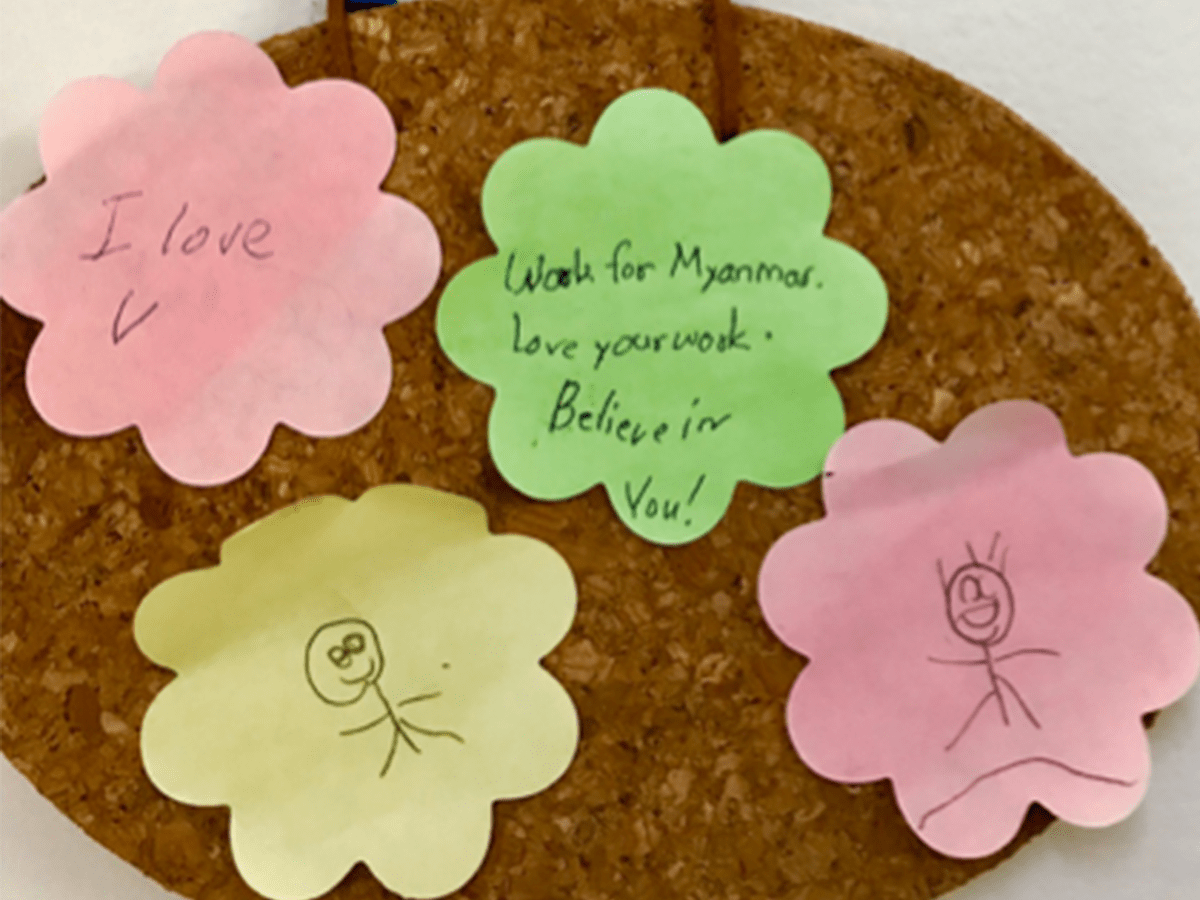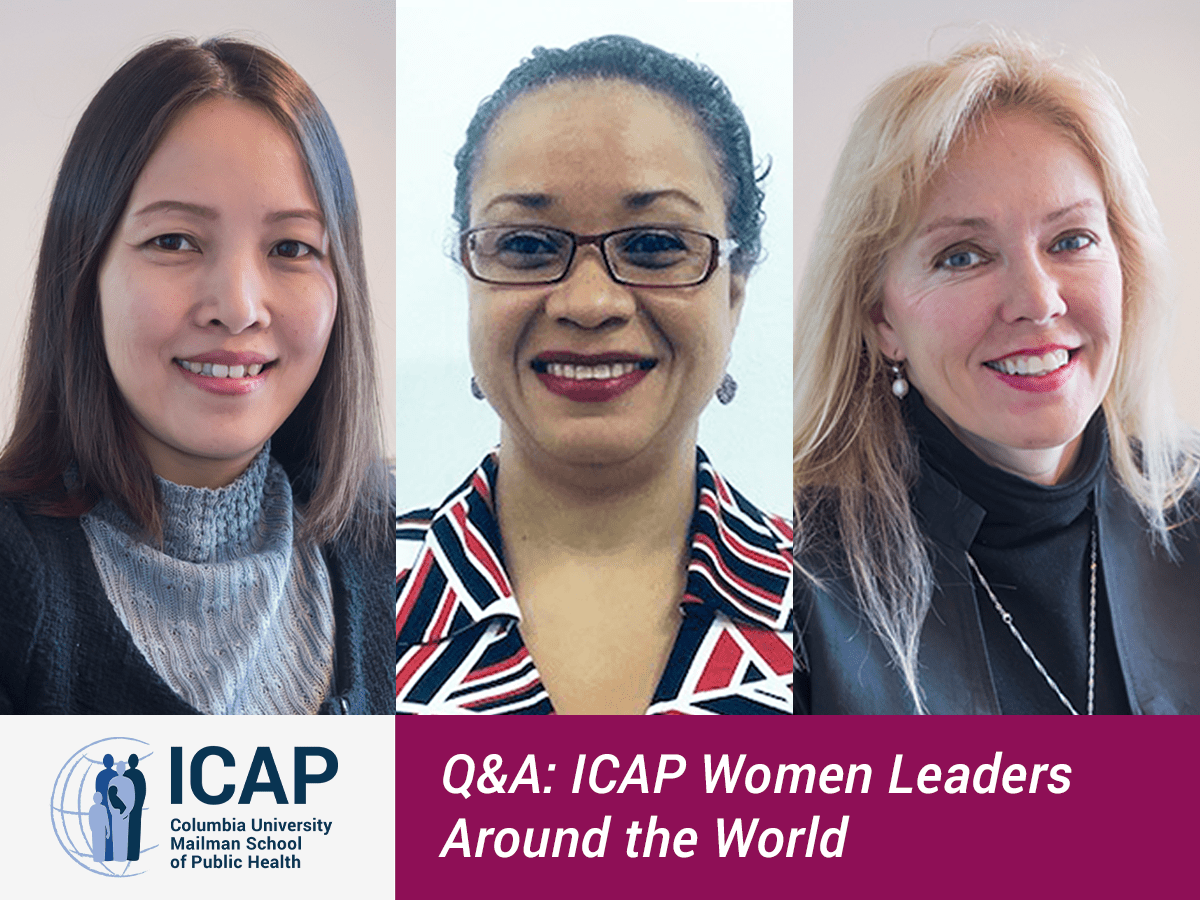ICAP is an organization led by an influential group of phenomenal women. March is women’s history month, but every day at ICAP, women are in the spotlight and at the forefront of shaping policy and decision-making in public health.
As the United States celebrates the contributions of women to American history, we at ICAP want to recognize the roles of our women leaders in this global public health organization. For the next several months, we will highlight the triumphs and challenges of ICAP’s women leaders around the world in this Q&A series.
Susan Michaels-Strasser, PhD, MPH, RN, FAAN, is a public health professional with over 25 years of experience in nursing and public health. She is the senior director for human resources for health (HRH) development.
Khin Nyein Chan, MD, MSc, is ICAP’s country director in Myanmar, where she leads the provision of technical assistance and implementation support to the Ministry of Health. Chan has over a decade of experience in public health, as well as expertise in clinical operations and management of HIV and TB/MDRTB in a resource-limited setting.
Barbara Roussel, MD, MSc, is the current chief of party for ICAP in Haiti, where she oversees the implementation and operations of the country office and provides technical oversight for the Population-based HIV Impact Assessment (PHIA) project. She has over 12 years of experience in HIV/AIDS program management and seven years of experience in infectious disease surveillance.
Q: Being a woman is often framed as a disadvantage, but are there times or circumstances where it has been an advantage, especially within the public health sector?
SMS: This is a tough one. The gender disparities are so omnipresent and frustrating at times, not necessarily in my work but in the broader society that it is hard to say. Being a mother and a woman helps me to relate more to women’s health challenges and concerns.
KNC: Being a woman has given me confidence—I believe that is the advantage when dealing with women’s sexual, reproductive, and maternal health. Only women like me can fully understand the feelings, challenges, emotions, and circumstances of another woman in need of reproductive health care. Compassion is a powerful tool for achieving the best health outcomes for women.
BR: In Haiti, being a woman health practitioner is an ongoing challenge and struggle. Women must go over and beyond to be respected, accepted, and valued even though they are as equally educated as men. My contribution to technical working group meetings, my ability to bring everyone together, is valued because of the extra work that I am willing to do to succeed.
Q: What is the best advice you have received as a career woman?
BR: “Do not let your age be a handicap to your success.” That advice motivated me the most, as one of the youngest leaders working with people from the government. Many times, I was the last one to speak at meetings because of my young age and the way I was brought up.
SMS: “Stand up, speak up.” Once, a male doctor encouraged me to stand up in a large meeting because a person made a disparaging remark about nurses. He said, “Susan, you are not going to take that; stand up.” I was very young, and it was very hard, but it taught me that my voice matters. It also showed me his respect for nurses, which encouraged me.
KNC: The most encouraging advice I have ever received is from my two little ones. They put up sticky notes that say, “I love you,” “Work for Myanmar,” “Love your work,” “Believe in you!” on a little wooden board I have hanging on the wall behind my desk when they visited my office some years ago. Whenever I am under pressure or stressed, I look at the sticky notes, and I feel an instant burst of energy that helps me go on with my work.

Q: What advice would you give to young women looking to work in the health care sector?
KNC: Build your knowledge and skills in providing health care. With added compassion, you will surely be top in your profession.
BR: Don’t let others’ opinions influence your path or dream, and don’t worry about speaking last. Being the last to talk gives you more time to listen, to analyze, and to identify the gaps that can inspire you to come up with solutions.
SMS: It is a rewarding career that gives you a rich life, not necessarily in money but in the privilege to connect with people and communities when they are most in need.
Q: What are your aspirations for the women of the next generation?
SMS: That they don’t have the baggage I was brought up with, or which my mother faced to a greater degree in the ’40s and ’50s. When I watch old movies, I realize with new eyes just how toxic gender stereotypes were in the past. I hope no one ever says to them, “just be a good girl.” I have raised my daughters very differently, and I can see they have a voice and are not afraid to use it. It gives me a lot of hope.
BR: My aspiration for women of the next generation is for all women, no matter their background, education level, and social standing, to finally have an equal opportunity to participate in the decision-making process for their peers, for their communities, and their rights.
Q: What do you hope for them, and what do you want to see the women of the next generation achieve?
KNC: Every woman has unbelievable strength and courage. I wish all the women of the next generation see this, build up their professional and personal lives to become inspirations for their kids—their next generation to build a better world.
SMS: I want to see women in more decision-making positions and positions of social influence at the highest levels. The voice of a woman needs to be valued on par with a man. I would like to see the next generation of women come together and support each other more. Working here has been amazing because we have such a tremendous, supportive group of accomplished women—this is not typical.
A global health leader since 2003, ICAP was founded at Columbia University with one overarching goal: to improve the health of families and communities. Together with its partners—ministries of health, large multilaterals, health care providers, and patients—ICAP strives for a world where health is available to all. To date, ICAP has addressed major public health challenges and the needs of local health systems through 6,000 sites across more than 30 countries.








